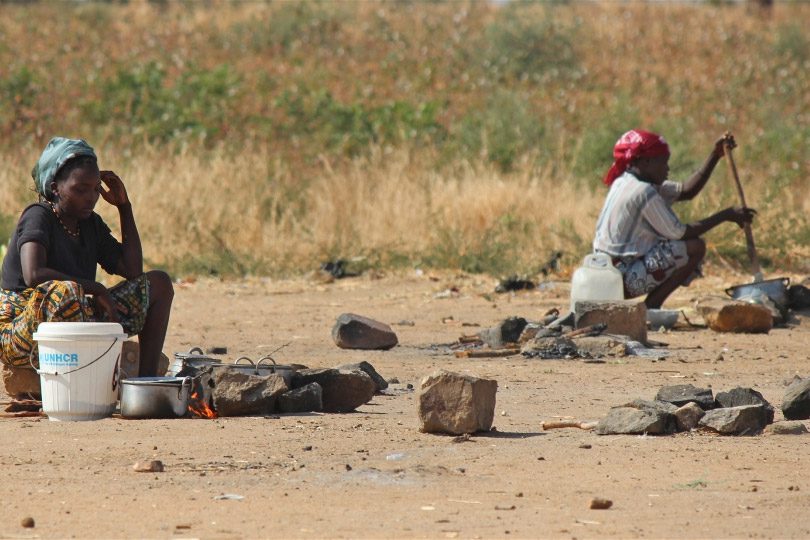The United Nations refugee agency announced today that it is stepping up efforts to move some 5,000 Nigerian refugees in Cameroon away from a border town amidst ongoing cross border attacks by insurgents.
Some 100 Nigerian refugees cross into Cameroon every day, the Office of the UN High Commissioner for Refugees (UNHCR) said in press release, which said that the Nigerian refugees had been living in “absolute fear” of the insurgents.
The agency has already relocated more than 8,600 over the past two weeks as cross-border fighting worsened. On 18 September, insurgents attacked a series of Cameroonian villages located along the border with Nigeria and burnt more than 10 churches. Ten days earlier, insurgents attacked villages in the area, killing eight people and seizing 300 motorbikes.
Since the beginning of the crisis in Nigeria, local authorities in Cameroon have reported the arrival of 43,720 Nigerian refugees, including 26,720 who have been registered by UNHCR.
The crisis in north-eastern Nigeria has also displaced some 70,000 people to neighbouring Niger, according to authorities, and some 1,600 to Chad. An estimated 650,000 people are internally displaced in north-eastern Nigeria due to the insurgency.
“The refugees told our teams that they are living in absolute fear as insurgents launch artillery shells into the town and want to relocate as soon as possible,” UNHCR said.
The agency said it is moving some 5,000 Nigerian refugees from the border town of Fotokol from the nearby Nigerian town of Gambaru Ngala, which had fallen under insurgent control this month.
In Fotokol, living conditions are dire. Refugees are living in overcrowded classrooms and in makeshifts shelters constructed with pieces of cloth. They rely on the local authorities and villagers for food.
“In response, we have started to build more family shelters, some 100 per day. We have just completed construction of an emergency health post and our partner, International Medical Corps, has deployed medical staff to provide emergency health care to new arrivals,” UNHCR said.



